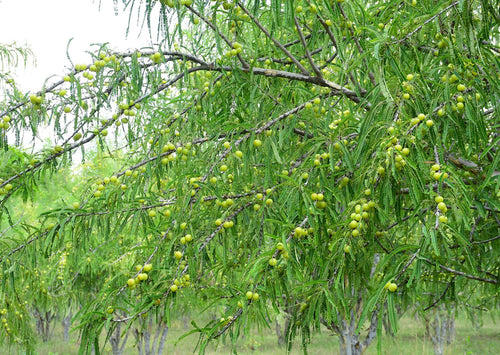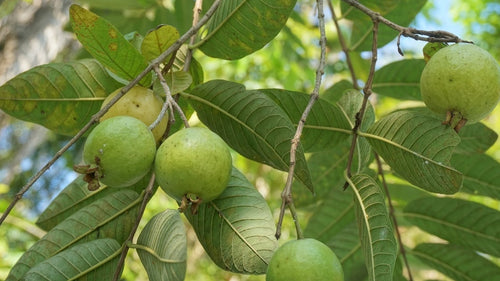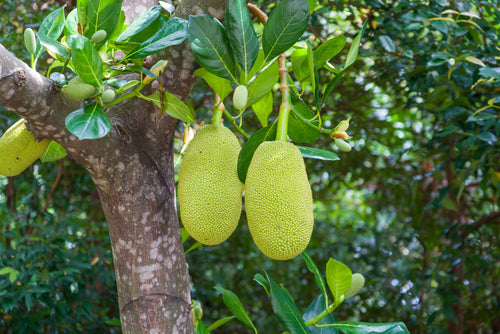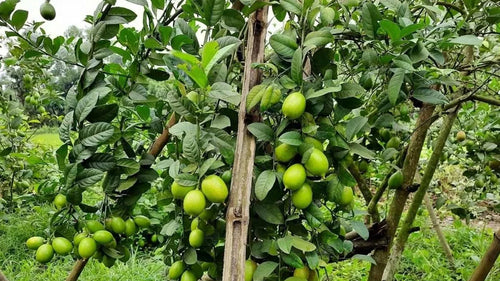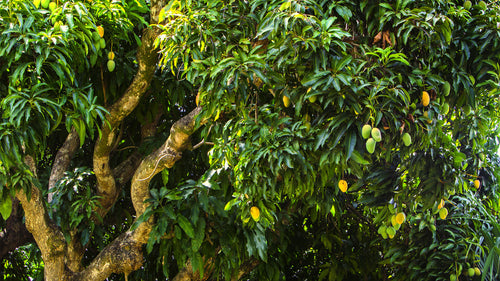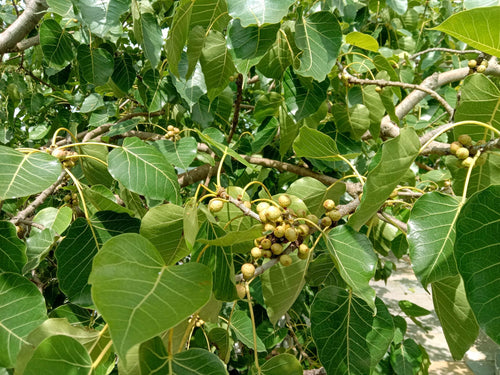Mini Forests, Mighty Impact: TKIL’s Green Action on World Environment
TKIL Industries Pvt. Ltd., formerly known as ThyssenKrupp Industries India Pvt. Ltd., has long been a pillar of Indian engineering and manufacturing, Read more
Project Update 3
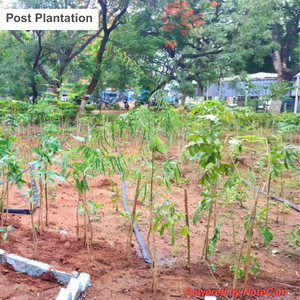
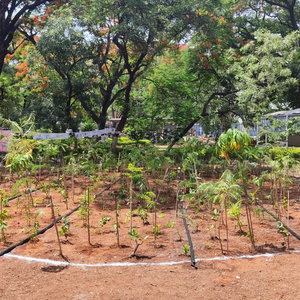
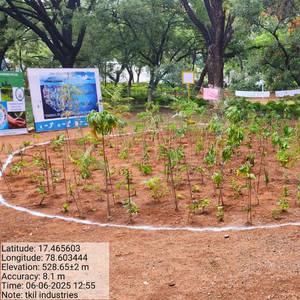
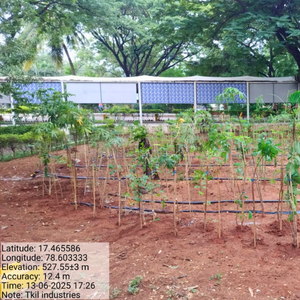
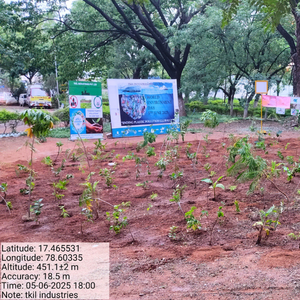
Project Update 2
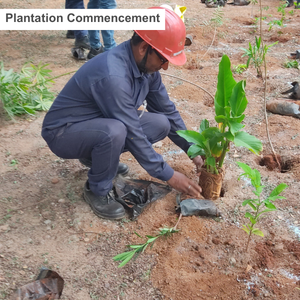
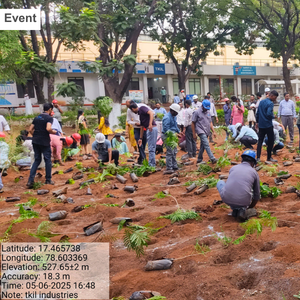
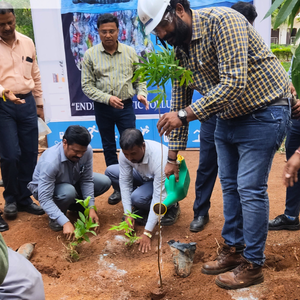
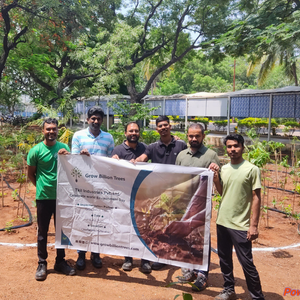
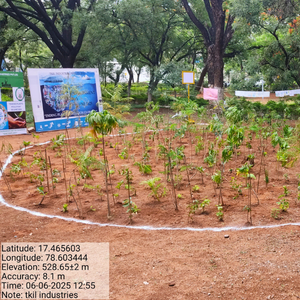
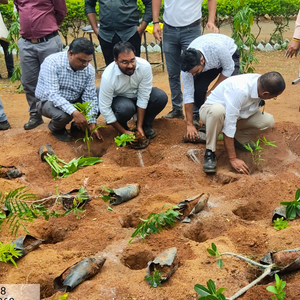
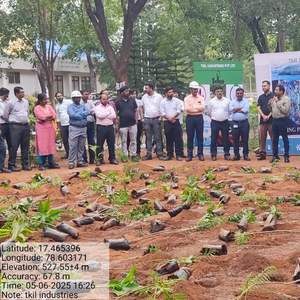
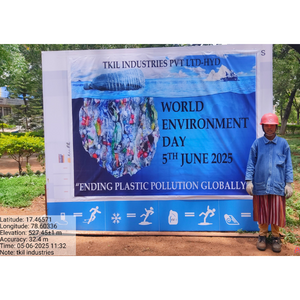
Project Update 1
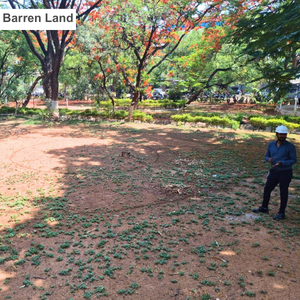
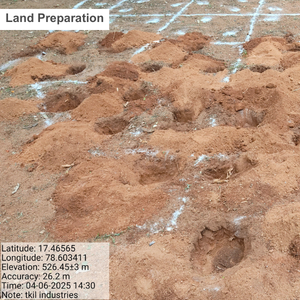
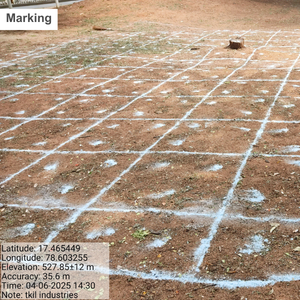
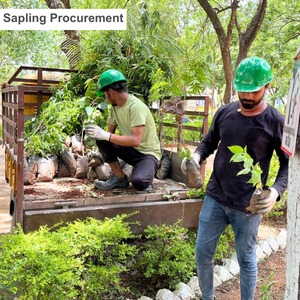
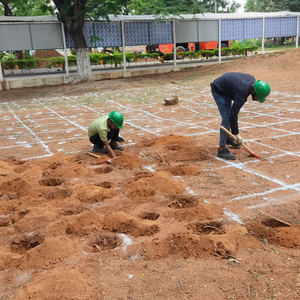
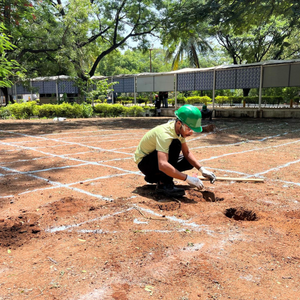
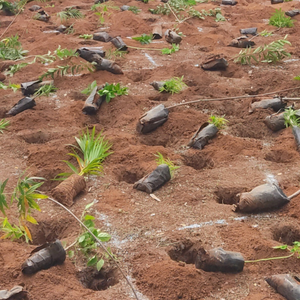
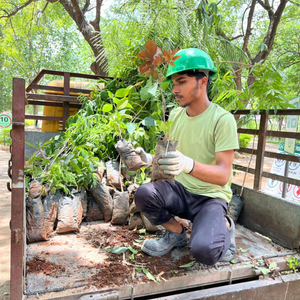
Digital Forest
Forest with 500 Trees planned
Want to plant your tree now?
Plant a Tree @ 299Mini Forests, Mighty Impact: TKIL’s Green Action on World Environment Day
TKIL Industries Pvt. Ltd., formerly known as ThyssenKrupp Industries India Pvt. Ltd., has long been a pillar of Indian engineering and manufacturing, with over 75 years of legacy across various sectors, including sugar, mining, cement, and power. As part of its ongoing commitment to sustainable development and corporate responsibility, TKIL has launched a meaningful tree plantation initiative based on the Miyawaki concept.
This green initiative is being launched in alignment with World Environment Day, underscoring TKIL’s dedication to environmental sustainability and its proactive role in fostering ecological balance. By adopting the Miyawaki method, a dense, native, and fast-growing afforestation technique, TKIL aims to create thriving urban forests that restore biodiversity, sequester carbon, and improve air quality.
Through this initiative, TKIL is not only honoring its industrial legacy but also nurturing a greener future. The effort reflects the company’s belief that engineering excellence must go hand-in-hand with environmental stewardship. With employees actively participating and the ecosystem at the heart of the project, this initiative stands as a powerful reminder of our shared responsibility to protect and restore the planet for future generations.
Project Planning & Execution
No of Trees: 500
Plantation Location: THYSSEN KRUPP, EC Nagar Colony, Cherlapally, Secunderabad, Telangana 501301
Plantation Date: 5th June 2025
Name of Species: Karanj, Custard Apple, Gulmohar, Mango, Guava, Badam, Saptparni, Peepal, Jackfruit, Lemon, Amla
Species Selection & Its Benefits:
The species selected for TKIL Industries Pvt. Ltd.’s plantation initiative were carefully curated to suit the local ecological conditions while maximizing environmental benefits. A total of 500 trees were planted, featuring a diverse mix of native, fruit-bearing, and ecologically significant species such as Karanj, Custard Apple, Gulmohar, Mango, Guava, Badam, Saptparni, Peepal, Jackfruit, Lemon, and Amla. These species were chosen for their unique environmental, nutritional, and cultural contributions, ensuring a balanced and sustainable green cover.
Fruit-bearing trees like Mango, Guava, Custard Apple, Jackfruit, Amla, and Lemon not only support local biodiversity and pollinators but also contribute to nutritional security for nearby communities and wildlife. Karanj is known for its nitrogen-fixing ability and oil-producing seeds, enhancing soil fertility. Peepal and Saptparni are revered for their exceptional air-purifying properties and ability to thrive in urban environments, contributing significantly to improved air quality. Badam provides protein-rich nuts and acts as a shade tree, while Gulmohar, with its vibrant flowers, enhances the aesthetic value of the landscape and supports pollinators. Collectively, these species enrich soil health, improve microclimates, and establish a resilient and thriving ecosystem, reinforcing TKIL’s commitment to environmental stewardship.
Beneficiaries Details
-
Target Population: Employees, stakeholders, and local community members of TKIL Industries Cherlapalli.
-
Age Group: Inclusive of all age groups, ensuring broad community participation.
-
Gender: Inclusive of all genders.
- Social & Economic Status: Open to all social and economic backgrounds, emphasizing community involvement.
Planting Methodology and Its Advantages
Miyawaki Technique: The Miyawaki technique is a dense afforestation method that promotes rapid green cover using native plant species. It consists of rapidly growing vegetation that develops 10 times faster and becomes 30 times denser than conventional plantations. By closely planting a diverse mix of flora, it creates a self-sustaining ecosystem that requires minimal maintenance. This method enhances biodiversity, improves air quality, absorbs carbon dioxide, and restores degraded land. Due to its high-density plantation style, it is especially effective in urban areas, offering environmental benefits such as temperature regulation, noise reduction, and soil enrichment.
Four-Step Process of Planting a Miyawaki Forest:
1. Preparation and Analysis
- Site Analysis: Begin with a thorough analysis of the site, considering factors like soil type, water availability, and sunlight exposure. This analysis guides the selection of native plant species best suited for the location.
- Soil Preparation: Clear the area of weeds and debris. Loosen the soil by tilling and amend it with organic compost to enhance fertility and moisture retention.
2. Plant Selection and Planting
- Plant Selection: Choose native plant species that are fast-growing, drought-resistant, and indigenous to the region. Diversity is crucial to mimic natural forests and promote ecological balance.
- Planting Technique: Dig pits or trenches for planting saplings, ensuring each has enough space to grow. Plant at a high density, typically 3 to 5 times denser than traditional forests.
3. Care and Maintenance
- Mulching: Apply a thick layer of mulch around the saplings to suppress weeds, conserve moisture, and protect the soil from erosion. Mulch also enriches the soil as it decomposes.
- Watering: Initially, saplings need regular watering to establish their roots. Once established, they require less frequent watering, but regular monitoring remains essential.
4. Monitoring and Growth
- Regular Maintenance: Perform regular weeding, pruning, and pest control during the initial years. Miyawaki forests become self-sustainable as they mature, but still require occasional maintenance.
- Monitoring: Keep track of the forest's growth and health, monitoring for signs of stress, disease, or pest infestations, and taking timely action when needed.
Four Layers of a Miyawaki Forest
The Miyawaki method emphasizes creating a multi-layered forest that mimics natural forests to achieve rapid growth and high biodiversity. Here are the four layers typically found in a Miyawaki forest:
- Canopy Layer: This topmost layer consists of tall trees that provide the canopy. These trees are usually fast-growing species that can reach heights of 15 to 30 meters or more. They offer shade and protection to the layers below.
- Tree Layer: Beneath the Canopy layer is the tree layer, consisting of smaller trees and larger shrubs. These plants help fill in the gaps between the taller trees, contributing to the dense foliage that characterizes a mature forest.
- Shrub Layer: Below the canopy, the shrub layer includes smaller shrubs and bushes that provide additional structure and diversity to the forest. These plants play a vital role in attracting pollinators and providing habitat for various wildlife.
- Ground Layer: The lowest layer is the ground layer, comprising ground covers, ferns, and herbaceous plants. These plants help to retain moisture, suppress weeds, and protect the soil. They also contribute to the overall biodiversity by providing habitat for insects and microorganisms.


Each layer in a Miyawaki forest serves a unique purpose and contributes to the forest's resilience, biodiversity, and ecological functionality.
Advantages of the Miyawaki Technique
-
Faster Growth: Vegetation grows up to 10 times faster than with conventional methods due to high-density planting, soil conditioning, and native species selection. It reaches maturity in 20-30 years instead of over a century, making it highly effective for ecological restoration.
-
Biodiversity Enhancement: The technique encourages a diverse mix of native species, supporting wildlife such as birds, insects, and small mammals, contributing to habitat restoration and ecosystem resilience.
-
Sustainability: After the initial 3 years, these green spaces become self-sustaining, requiring minimal intervention. Natural mulch helps retain moisture and suppresses weed growth, making maintenance cost-effective.
-
Soil Health Improvement: Organic matter decomposition enhances soil fertility while root systems aerate the ground, improving water retention and preventing erosion, especially in degraded or sloped areas.
-
Microclimate Regulation: The dense vegetation reduces heat absorption, increases moisture release, and combats the urban heat island effect, improving air quality and energy efficiency in nearby structures.
-
Space Efficiency: This method allows for high-density planting in small areas, making it ideal for urban spaces, schools, and community parks, even on degraded land.
-
Ecosystem Restoration: By using native species, these forests seamlessly reintegrate with local ecosystems, supporting pollinators and maintaining ecological balance.
- Low Water Consumption: Once established, the dense planting and bio mulch help retain moisture, reducing the need for frequent watering, making it a sustainable solution even in water-scarce regions.
Activities During Tree Plantation
During the tree plantation drive organized by Grow Billion Trees in collaboration with TKIL Industries Pvt. Ltd., Mr. Akhil Ghosh Pillai – Head OSHE, Hyderabad, led the initiative with active participation from over 50 dedicated TKIL employees. Held on 5th June 2025 to mark World Environment Day, the event served as a meaningful platform to unite the workforce around a shared environmental cause.
Before the plantation, the site at EC Nagar Colony, Cherlapally, was meticulously prepared. Pits were pre-dug and enriched with organic manure to provide optimal planting conditions, ensuring high survival rates and healthy growth for the saplings. The day began with a moment of reflection, allowing participants to reconnect with nature and the purpose behind their efforts.
With enthusiasm and teamwork, employees took part in planting and watering a total of 500 saplings, comprising ecologically significant and native species like Karanj, Mango, Peepal, and Amla. The hands-on involvement fostered a sense of pride and ownership, while reinforcing TKIL's broader commitment to sustainability.
The event concluded with a vibrant group photo session, celebrating the collective effort and the newly established green space. Participants shared personal stories and reflections, culminating in a group pledge led by Mr. Akhil to champion a greener, more sustainable future, both within the organization and beyond.
Conclusion Elements
Impact
Direct Impact
| Parameters | Values | References |
| No. of Trees Planted | 500 | |
| Green Cover (Acres) | 0.16 | |
| Carbon Sequestration Potential (KG) | 20 |
Small to medium-sized trees can sequester around 10–48 kilograms (22–106 pounds) of CO₂ annually. https://growbilliontrees.com/blogs/knowledge/how-much-co2-can-one-tree-absorb |
| Carbon Sequestration by 500 mature trees ( Tons/year) | 10 Tons | No. of Trees x Carbon Sequestration by 1 mature trees per year |
| Carbon Credit Equivalent | 10 | One carbon credit is equivalent to one tonne of carbon dioxide or the equivalent amount of another greenhouse gas. |
| Carbon Footprint of an avg Indian Citizen (Tons/Year) | 1.8 | https://www.iea.org/countries/india/emissions |
| Offsets Annual Carbon Footprint of (Adults) | 6 | Carbon offset by 500 mature trees per year / Carbon Footprint of an avg Indian Citizen per year |
*This impact analysis is forward-looking (A Miyawaki - Forest project matures in 2-3 years)
Indirect Impact
Community Impact
-
Environmental Awareness: Involving employees and local communities in the plantation drive fosters greater awareness about environmental conservation and encourages sustainable practices in daily life.
-
Employee Morale & Engagement: The initiative instilled a sense of pride, ownership, and teamwork among employees, strengthening their connection to the company’s sustainability goals and fostering a culture of environmental responsibility.
-
Inspiration for Change: By showcasing the rapid and dense growth of Miyawaki forests, this project has inspired organizations, institutions, and local communities to adopt this innovative afforestation method, encouraging widespread urban greening and ecological restoration efforts.
-
Cultural Shift: The initiative cultivated a long-term mindset of sustainability, encouraging participants to become advocates for green practices in both their personal and professional lives.
-
Enhanced Community Collaboration: Strengthened ties between corporate stakeholders, local authorities, and environmental groups, creating a collaborative approach to sustainability.
Environmental Impact
-
Biodiversity Conservation - By introducing native plant species, the project supports local wildlife, including birds, insects, and pollinators, fostering a healthier and more diverse ecosystem.
-
Carbon Sequestration – The planted trees act as natural carbon sinks, absorbing carbon dioxide and helping mitigate climate change by reducing greenhouse gas emissions.
-
Air Purification – Trees filter pollutants such as carbon monoxide, nitrogen oxides, and particulate matter, improving air quality and promoting a healthier environment.
-
Microclimate Regulation –The plantation reduces the urban heat island effect, cooling the surrounding area and helping to regulate temperature, making urban environments more comfortable.
-
Water Conservation - The bio mulch created by the plantation helps retain soil moisture, reducing the need for frequent watering and promoting efficient water use in the ecosystem.
-
Soil Health Improvement – The plantation enriches soil fertility by adding organic matter, improving soil structure, and supporting surrounding vegetation.
-
Erosion Prevention – Tree roots stabilize the soil, preventing erosion caused by wind and water, which helps protect infrastructure, roads, and green spaces.
- Noise Reduction – Green spaces serve as natural sound barriers, dampening noise pollution and contributing to a quieter, more peaceful environment.
Achievements
SDG Goals Achieved Through Miyawaki Plantation
-
SDG 3: Good Health and Well-Being – The establishment of green spaces through this project promotes good health and well-being for the community. These green areas improve air quality, reduce stress, and contribute to the overall better mental and physical health of the community.
-
SDG 6: Clean Water and Sanitation – Through TKIL Industries Pvt. Ltd.'s tree plantation project, significant strides are made in water conservation. The planted trees enhance soil structure, increase water retention, and reduce surface runoff, preventing soil erosion and promoting groundwater recharge. This ensures sustainable water resources for the surrounding community, improving local access to clean water.
-
SDG 7: Affordable and Clean Energy – As part of its contribution to affordable and clean energy, TKIL Industries Pvt. Ltd.'s plantation aids in cooling urban spaces, thus reducing the demand for air conditioning and lowering energy consumption. By mitigating heat and improving local microclimates, the initiative supports energy efficiency and reduces reliance on energy-intensive cooling systems.
-
SDG 8: Decent Work and Economic Growth – The plantation project by TKIL Industries Pvt. Ltd. also provides economic opportunities by creating jobs and encouraging local engagement in the process of tree planting and maintenance. Employees and local workers gain skills, fostering economic development in the region while contributing to long-term sustainability.
-
SDG 9: Industry, Innovation, and Infrastructure – TKIL Industries Pvt. Ltd.’s plantation also aligns with SDG 9, focusing on fostering innovation in sustainable practices. By utilizing advanced techniques like the Miyawaki method, the company contributes to the development of eco-friendly infrastructure, showcasing a sustainable approach to land use and environmental conservation. This innovation in planting methods helps restore degraded areas, enhancing green infrastructure.
-
SDG 11: Sustainable Cities and Communities – By planting in urban areas, it enhances green cover, reduces pollution, and helps combat the urban heat island effect, making cities more resilient and livable. This initiative contributes to the development of sustainable communities, providing residents with cleaner air, recreational spaces, and an improved quality of life.
-
SDG 12: Responsible Consumption and Production – The project encourages sustainable land use and responsible environmental management. By utilizing the Miyawaki technique, TKIL Industries Pvt. Ltd. ensures that the plantation process is efficient, requiring minimal water and resources while promoting soil health and biodiversity.
-
SDG 13: Climate Action – TKIL Industries Pvt. Ltd.'s tree plantation initiative contributes significantly to climate action by helping mitigate climate change through carbon sequestration. The newly planted greenery absorbs carbon dioxide, reducing the carbon footprint of the area. Additionally, the project combats the urban heat island effect, lowering temperatures and improving the local climate resilience.
-
SDG 15: Life on Land – The plantation directly supports biodiversity conservation by introducing a variety of native plant species, which provide vital habitats for local wildlife, including pollinators and small animals. This restoration of ecosystems helps prevent biodiversity loss and strengthens the surrounding natural environment, fostering a balanced and thriving ecosystem.
-
SDG 17: Partnerships for the Goals – TKIL Industries Pvt. Ltd.’s plantation initiative promotes collaboration and partnerships with various stakeholders, including employees and Grow Billion Trees. By working together towards common goals, the project strengthens partnerships that amplify the positive impact on environmental sustainability and community well-being. The collective effort of all partners helps achieve shared goals and builds a network for future sustainable initiatives.
ESG Achieved through Miyawaki Plantation
-
Environmental Impact: TKIL Industries Pvt. Ltd.'s Miyawaki plantation has a significant positive effect on the environment. By planting native species densely, it enhances biodiversity, provides vital habitats for wildlife, and supports the survival of pollinators and other beneficial organisms. Additionally, the dense green cover contributes to carbon sequestration, helping to mitigate climate change by absorbing carbon dioxide from the atmosphere. The plantation also promotes soil and water conservation, improving soil fertility, preventing erosion, and increasing water retention. These benefits ensure the health of the land and contribute to sustainable water management. Furthermore, the cooling effect generated by the dense vegetation combats the urban heat island effect, reducing temperature fluctuations and contributing to a more stable microclimate in urban spaces.
-
Social Impact: The Miyawaki plantation method encourages active community engagement by involving employees and other stakeholders in planting and maintaining green spaces. This participatory approach fosters a sense of ownership and pride, which leads to stronger community bonds and a collective responsibility for environmental sustainability. Moreover, the greenery helps to improve health and well-being by purifying the air, reducing pollutants, and creating more pleasant and healthier environments. These green spaces provide areas for relaxation and recreation, contributing to improved mental and physical health. The project also serves as an educational tool, raising awareness and informing the public about the importance of environmental conservation, sustainability practices, and the benefits of native vegetation. Furthermore, the project supports local livelihoods by generating employment opportunities in tree planting, maintenance, and environmental stewardship.
- Governance Impact: The Miyawaki plantation method also strengthens governance by promoting transparency and accountability in environmental practices. By following a structured, well-documented approach, the project ensures that all activities are carried out ethically and in accordance with environmental guidelines. The initiative supports compliance with local and global environmental regulations, ensuring that the project aligns with established sustainability standards. Additionally, the long-term sustainability of the plantation, requiring minimal intervention after the initial years, reflects the organization's commitment to responsible environmental stewardship. By focusing on sustainable practices, the project highlights the company’s dedication to governance and reinforces its role as a responsible corporate entity in contributing to environmental protection and social well-being.
Building Communities
One of the most profound impacts of TKIL Industries Pvt. Ltd.'s Miyawaki plantation initiative has been the spirit of unity and collaboration it fostered. By actively involving employees, local communities, and volunteers, the project became more than just a tree plantation drive; it evolved into a shared mission to create resilient and sustainable green spaces. This collective effort has strengthened environmental consciousness and encouraged long-term stewardship of natural resources.
-
Empowering Communities: This initiative actively engages employees and stakeholders in the planting and maintenance processes. This involvement fosters a sense of ownership over the green spaces, empowering individuals to take responsibility for their environment. As participants contribute to the growth of their community’s green cover, they become more connected to their surroundings, building pride and a shared commitment to sustainability.
-
Fostering Meaningful Partnerships: The initiative brought together key stakeholders, including TKIL Industries Pvt. Ltd., Grow Billion Trees, and local communities, demonstrating the power of collaboration in achieving lasting environmental and social change. These partnerships strengthened the collective commitment to sustainability, ensuring that afforestation efforts continue to thrive in the long run.
-
Inspiring a Ripple Effect: As the benefits of the afforestation project became evident improved air quality, enhanced biodiversity, and increased community engagement its impact extended beyond the immediate planting site. Local communities and organizations have been inspired to replicate similar initiatives, amplifying the project's reach and reinforcing the importance of urban greening.
This initiative exemplifies that true environmental sustainability is not just about planting trees, it’s about nurturing awareness, fostering collaboration, and creating a shared vision for a healthier, greener, and more sustainable future.
Commitment by Grow Billion Trees
Trees for Corporates
Trending
Most Popular
1. TKIL Industries tree plantation initiative
When engineering giants go green, forests grow fast! TKIL Industries Pvt. Ltd., known for its industrial might, is now flexing its green thumb with a powerful tree plantation initiative. Instead of concrete, this time it’s about canopy. Launched in alignment with World Environment Day, the initiative blends environmental vision with execution precision. The company adopted the Miyawaki method—known for its rapid growth and biodiversity benefits—to create a thriving green zone that rivals nature’s own handiwork. With roots literally in the ground and values rooted in sustainability, TKIL’s employees are turning hard hats into green hats. The initiative doesn’t just offset carbon—it offsets indifference. Now, that's engineering with empathy. This bold step proves that TKIL is not just building infrastructure; it's building ecosystems. Move over smokestacks—here come saplings!
2. Miyawaki forest by TKIL Industries
dense, diverse, and deliciously wild. TKIL may specialize in cement, sugar, and steel, but its latest project proves it can engineer biodiversity just as well. These forests aren’t just eye candy—they're lungs for the planet. Who says engineers can’t be environmentalists?
3. TKIL World Environment Day activity
While most of us plant a tweet on World Environment Day, TKIL Industries decided to plant actual trees! As part of their sustainability calendar, TKIL’s team marked the day with a Miyawaki forest creation. With nature taking center stage, bulldozers took a back seat for once. Employees traded machines for saplings, showing the world that being green isn’t just fashionable—it’s essential. The activity was more than just photo ops and hashtags; it was a statement. TKIL doesn’t do anything half-hearted, and that includes saving the planet. From powerhouse to greenhouse—what a switch! Mother Earth approves.
4. Corporate afforestation by TKIL
CSR just got greener—and cooler! TKIL Industries is setting a fresh benchmark in corporate afforestation by swapping its engineering blueprints for forest floor plans. Their Miyawaki forest initiative isn't just about planting trees; it’s about growing a legacy. In a world where buzzwords like “greenwashing” are thrown around, TKIL is doing the opposite—actual green-doing. They’re not just writing cheques; they’re getting their hands dirty. This approach transforms barren plots into biodiversity hotspots, showing how corporates can truly walk the green talk. TKIL proves that afforestation isn't just a policy—it’s a powerful action. It’s CSR with chlorophyll!
5. TKIL employee environmental engagement
Think engineers don’t know plants from plans? Think again. TKIL Industries’ tree plantation drive brought employees together not for a team meeting, but for team mulching. With sleeves rolled up and saplings in hand, the workforce proved their dedication goes beyond deadlines. This green escapade wasn’t just a break from routine—it was a bonding experience with Mother Nature. Miyawaki forests are fast-growing, but so is environmental awareness among TKIL employees. By digging holes, they filled gaps—in the earth and in corporate culture. Who knew sustainability could be this hands-on and this fun?
6. Urban biodiversity with TKIL Miyawaki forest
Biodiversity is back, and TKIL is leading the charge—in style. With their Miyawaki forest project, the company is transforming sterile spaces into biodiversity bonanzas. Picture bees buzzing, birds nesting, and bugs doing their mysterious bug things—all in a forest engineered by, well, actual engineers. Urban biodiversity isn’t just for environmentalists in khaki hats anymore; it’s the new frontier for corporate responsibility. TKIL’s initiative is like a time machine that brings back forgotten species to the present. Biodiversity? More like bio-diva-sity, thanks to TKIL!
7. Sustainable initiatives by TKIL Industries
Steel, sugar, and… sustainability? That’s right—TKIL Industries has added eco-consciousness to its product list. Beyond machines and megawatts, the company is rolling out initiatives that are light on the planet but heavy on impact. Their Miyawaki plantation isn’t a one-off publicity stunt—it’s part of a long-term commitment to balance industrial prowess with environmental mindfulness. Whether it’s resource-efficient operations or ecological restoration, TKIL is proof that even heavy industries can have a light footprint. This isn’t just sustainability—it’s sustainability with substance.
8. Green future with TKIL tree plantation
The future’s looking greener—because TKIL is planting it one sapling at a time. Their Miyawaki forest project isn’t just a nod to environmental trends; it’s a full-throttle commitment to planetary well-being. In a world racing against climate change, TKIL decided to slow down, kneel down, and plant down. This green initiative is their love letter to the next generation—a future filled with clean air, lush green zones, and chirping mornings. TKIL isn’t waiting for change; they’re cultivating it. Now that’s what we call rooted in responsibility.
FAQ
What is the purpose of TKIL Industries Pvt. Ltd.'s tree plantation initiative?
TKIL Industries Pvt. Ltd. undertook the tree plantation initiative to contribute to environmental sustainability and promote ecological balance. Aligned with World Environment Day, this initiative reflects our commitment to building a greener future. Through afforestation using the Miyawaki method, we aim to restore biodiversity, improve air quality, and inspire action among our employees and communities.
How does TKIL Industries use the Miyawaki method for afforestation?
We use the Miyawaki method to grow dense, native forests in small urban spaces. This technique involves planting a mix of indigenous species close together, which grow rapidly and become self-sustaining within a few years. It allows us to create biodiversity-rich green zones that support the environment effectively, even in industrial or urban landscapes.
Why is the Miyawaki forest concept important for India?
The Miyawaki forest concept is vital for India as it combats urban pollution, restores degraded land, and supports biodiversity. At TKIL Industries, we believe this method is a game-changer for fast-growing urban forests that positively impact air quality, temperature regulation, and green cover—essential for sustainable cities and healthier communities.
What sectors does TKIL Industries Pvt. Ltd. operate in besides sustainability?
Besides sustainability, TKIL Industries operates in key engineering sectors such as Sugar Plants & Machinery, Mining & Bulk Material Handling Systems, Cement Plants & Machinery, and Boilers & Power Plants. Our expertise in turnkey solutions complements our green initiatives, enabling us to integrate sustainability into every aspect of industrial growth.
How are TKIL employees involved in the tree plantation drive?
Our employees actively participate in the plantation drive, from planting saplings to nurturing the green zones. This hands-on involvement strengthens our environmental culture and team spirit. It also fosters a sense of ownership and pride in contributing to a sustainable future, aligning personal values with corporate responsibility.
How does TKIL ensure the sustainability of its green initiatives?
We ensure sustainability by adopting long-term, scientifically backed approaches like the Miyawaki method and by engaging local ecosystems. Maintenance plans, native species selection, and regular monitoring help our forests thrive naturally. Sustainability is embedded in our planning, execution, and follow-through, ensuring that each green initiative makes a lasting impact.
What benefits does the Miyawaki forest offer to the local community?
The Miyawaki forest improves air quality, reduces noise pollution, enhances biodiversity, and creates green spaces for local communities. At TKIL, we view these forests as environmental assets that benefit everyone—bringing nature closer to people and helping communities experience the joy and value of restored ecosystems.
Is this tree plantation part of TKIL’s CSR activities?
Yes, our tree plantation initiative forms an important part of our Corporate Social Responsibility (CSR) efforts. At TKIL Industries Pvt. Ltd., we go beyond compliance by investing in projects that offer real environmental and social value. Afforestation under CSR reinforces our commitment to a greener and more responsible future.
How does TKIL measure the success of its plantation initiative?
We measure success through sapling survival rates, biodiversity index improvements, and community engagement levels. Regular monitoring and audits help track forest growth and health. TKIL Industries believes in data-driven impact, ensuring that our green efforts are not only visible but verifiable and continuously improving.
What is the future plan of TKIL for environmental sustainability?
Our future plan includes expanding afforestation projects, integrating sustainable practices into operations, and exploring green innovations in engineering. TKIL Industries Pvt. Ltd. remains committed to making sustainability an integral part of our growth strategy, continuously improving our environmental footprint for a better tomorrow.
- Choosing a selection results in a full page refresh.
- Opens in a new window.


